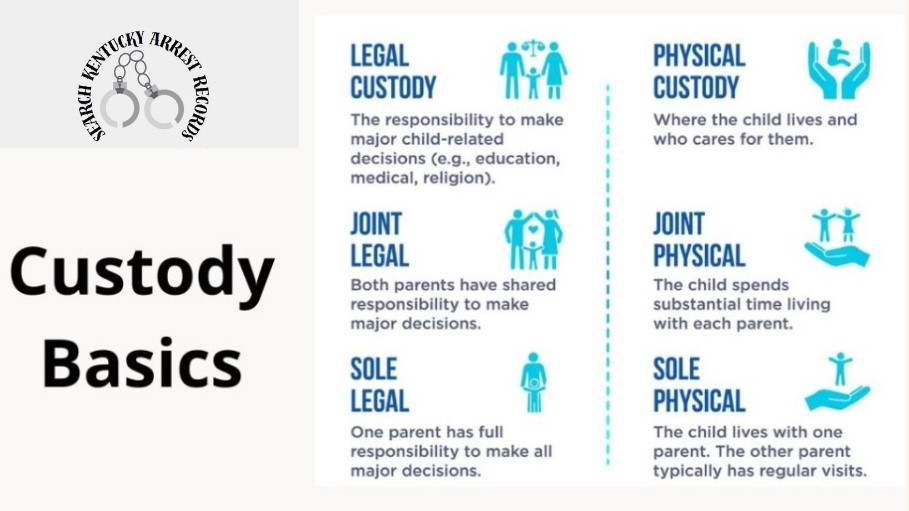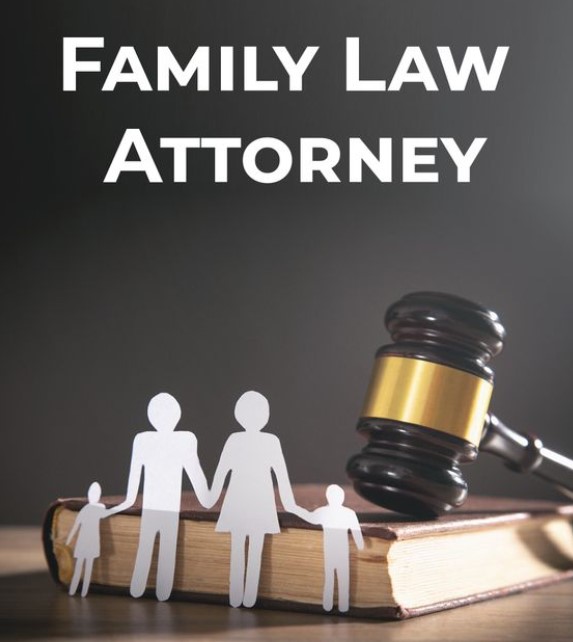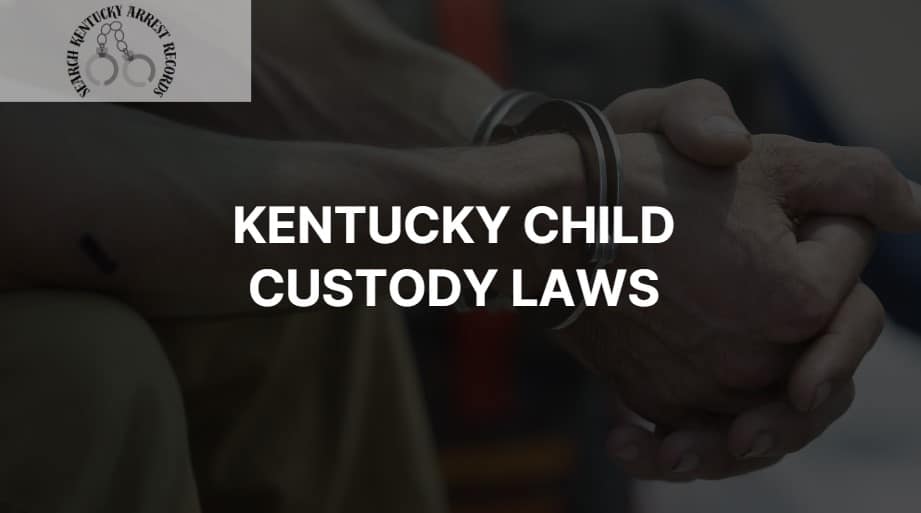As someone deeply familiar with family law, I cannot stress enough the importance of understanding Kentucky child custody laws. I believe that these laws provide a framework for resolving disputes over the care and education of children in breakup situations. In my practice, the principle of the child’s best interests is important and central as it guides parental responsibilities.
For every adult facing the challenge of determining child custody arrangements during a divorce or imprisonment, it is very important to clarify for themselves all the subtleties and paths that their child can take in a difficult situation. This is also important for those who will deal with the issue of obtaining custody of the child of a close relative or friend who is in trouble.
Kentucky stands out as a jurisdiction with its own set of laws and rules governing child custody.
Having faced similar issues many times, I can say that Kentucky demonstrates a commitment to protecting the welfare of children while respecting parental rights. For anyone involved in custody disputes across the state, whether as a resident or seeking legal relief within its borders, knowledge of Kentucky’s legal framework is of utmost importance.
That’s why, in the following sections, I’ll delve into the intricacies of Kentucky’s child custody laws. By exploring key concepts, rules, and considerations, my goal is to empower people to navigate custody proceedings with clarity and confidence, ultimately prioritizing the best interest of the child involved.
Definition of child custody and its various forms
In Kentucky, child custody means legal and physical responsibility for the care and upbringing of a child. It covers several types, including legal custody, physical custody, joint custody, and sole custody.
I propose to consider each type in more detail.
Let’s start with legal custody, which involves making important decisions regarding the child’s upbringing, such as those related to education, the child’s physical health care, and religious upbringing. Parents who have been granted legal custody must understand that they now have the right to participate in these decisions on behalf of the child.
Physical custody involves the daily care and residence of the child. What I would like to point out in this case is that the parent with this form of custody is responsible for providing for and supervising the child’s daily needs.
Joint custody. What’s important to understand here is that joint custody means that both parents share legal and/or physical custody of the child. Joint custody can take many forms, including legal joint custody, joint physical custody, or both. In joint custody agreements, parents typically collaborate to make important decisions for the child and share parenting time.
Sole custody. Sole custody gives one parent sole legal and/or physical custody of a child. But for the second parent, this is not a death sentence, because even if he or she is not a guardian, he or she can still have the right to visitation. The only limitation for the other parent in sole custody is that he or she does not share decision-making authority or physical custody with the custodial parent.
Split custody involves the division of siblings between parents, with each parent having primary custody of one or more children. In Kentucky, split custody agreements are less common and may be considered if it is deemed to be in the best interests of the children involved. The court will evaluate various factors, including the children’s relationship with each parent, their preferences if they are mature enough to express them, child’s wishes, and the children’s overall stability and well-being.

Joint custody: Pros and cons
Now, in my practice, decisions on joint custody have become very common. So the court wants to give the child the opportunity to communicate with both parents. Therefore, I would like to consider the pros and cons of the joint custody.
Pros:
- Joint custody allows both parents to participate in the decision-making process regarding their child’s upbringing.
- This allows the child to maintain meaningful relationships with both parents.
- When parents can communicate and collaborate effectively, shared custody can lead to fewer conflicts.
Cons:
If the parents have a high level of conflict, then this will be a difficult custody option, which can bring a lot of anxiety to the child.
In Kentucky, joint custody may be granted if both parents demonstrate the willingness and ability to cooperate in making decisions regarding the child’s welfare. The court considers factors such as the parent’s ability to communicate effectively, their respective roles in care, and the child’s preferences.
5 Basic steps when filing for child custody
- I recommend first consulting with a family law lawyer or free legal aid organizations. You can also contact the Kentucky Bar Association or local bar associations for referrals to attorneys who handle custody cases.
- Prepare all the necessary documents for a custody case to be initiated, this could be: a petition for custody or a petition to change an existing custody order.
- You can now file in Family Court or District Court.
- Make sure the other parent has received copies of the documents and is aware of the court application.
- Attend court hearings as scheduled and present your case to the judge, providing evidence and testimony to support your custody requests.
Custody Decree in Kentucky Courts: How is it Determined?
The loyalty to the laws in Kentucky is simply amazing. After all, the court intervenes only if the parents themselves cannot reach an agreement on who and in what form will be responsible for the child and make all important decisions. If quarrels and misunderstandings between parents persist and this interfere with the child’s well-being, then the court decides how and with whom the child will be better off.
What factors does the court use when making a child custody decision?
Of course, all cases are individual, but I would like to highlight those that have occurred in my practice:
- The child’s relationship with each parent is analyzed.
- The court checks the child’s adaptation to school and society.
- The history of possible precedents of domestic violence or drug abuse and the criminal history of each of the parents are studied.
- Next, each parent is interviewed and tested to determine their ability to provide for the child’s physical and emotional needs.
- Also equally important is the parent’s desire to maintain the relationship and provide access to communication with the other parent.
Only after a thorough study of all factors, the Kentucky court decides on identifying a guardian who will give the child successful development, mental and physical health, moral satisfaction from life, love, care, and everything necessary.
Key points of Kentucky child custody laws
Now I would like to highlight 2 important aspects.

Parenting plans
Now let’s move on to an equally important aspect after determining legal custody or other type – this is the parenting plan. In Kentucky, parenting plans are important documents. In them you can see the responsibilities and arrangements of each parent regarding the care and custody of their child(ren) after divorce or separation. What is written in these documents:
- Detailed schedules indicating the time the child will be with each parent, including weekdays, weekends, holidays and vacation periods.
- Clarification of which parent will make important decisions regarding the child’s upbringing, education, health care, and religious upbringing.
- Recommendations for communication between parents regarding the child’s well-being, including communication methods.
- Procedures for resolving conflicts or disagreements that may arise between parents regarding the child’s upbringing or schedule.
- Distribution of financial responsibilities, including child support payments, medical expenses and other financial issues related to child care.
I believe that every parent is obliged to study this information in great detail, because if the recommendations are not followed, the guardian may complain about a violation and this can cause problems, including a ban on meeting with the child.
Visiting rights
These are the rights that are given to the non-custodial parent to spend time with their child(ren) after a divorce or separation. Most often, such a schedule is divided into:
- Regular visitation schedule. Specific visitation times and dates, such as weekends, evenings, or overnights, depending on the age of the child and the parents’ circumstances.
- Holiday and Holiday Visitation. A period that allows a child to spend time with the non-custodial parent during holidays, school holidays and other special occasions.
- Supervised Visitation. In cases where there are concerns about the safety or well-being of a child, the visit may be supervised by a third party or in a supervised visitation center.
- Enforcing Visitation Rights. Procedures for enforcing visitation rights if one parent does not comply with the agreed-upon schedule, including remedies such as contempt of court or modification of the custody order.
Conclusion
Navigating Kentucky’s child custody laws requires careful consideration of the child’s best interests and a thorough understanding of legal processes. The Kentucky law aims to ensure the well-being and stability of children amidst parental separation or divorce. While the complexities can be daunting, prioritizing open communication, cooperation, and seeking legal guidance when needed can help families find resolutions that serve the children’s welfare above all else.
faqs
How does Kentucky handle cases of domestic violence when determining child custody?
Kentucky courts take cases of domestic violence very seriously. If a parent has a history of domestic violence, it may impact their chances of obtaining custody. The court will prioritize the safety and well-being of the child and the victimized parent. In some cases, supervised visitation or other protective measures may be ordered to ensure the child’s safety.
Can a custody order be modified in Kentucky if circumstances change?
Yes, a custody order can be modified in Kentucky if there is a significant change in circumstances that affects the child’s well-being. This change could be related to a parent’s relocation, job change, remarriage, or any other substantial alteration in the child’s living situation. To modify a custody order, the requesting party must demonstrate to the court that the modification is in the best interests of the child.
Can grandparents or other relatives be granted visitation rights in Kentucky?
Yes, under certain circumstances, grandparents or other relatives may be granted visitation rights in Kentucky. They can petition the court for visitation if it is in the best interests of the child and one of the following conditions is met: the parents are divorced, separated, or one of them is deceased; the child was born out of wedlock, and paternity has been established; or the child has lived with the grandparent or relative for a significant period.
What is the “best interests of the child” standard in Kentucky, and how does it affect custody decisions?
The “best interests of the child” standard is the primary consideration in Kentucky child custody cases. It means that the court will make decisions based on what is best for the child’s overall well-being, safety, and happiness. The court assesses various factors to determine this, as mentioned in the response to the first question.
What factors do Kentucky courts consider when determining child custody arrangements?
Kentucky courts consider several factors when determining child custody, including the child’s age, mental and physical health, and emotional well-being, each parent’s ability to provide a stable home environment, the child’s established relationship with each parent, the parents’ willingness to cooperate and foster a positive relationship between the child and the other parent, and the child’s preferences, depending on their age and maturity.
How can I increase my chances at getting a larger custody agreement?
Demonstrating active involvement in your child’s life, maintaining stability, cooperating with your co-parent, and seeking legal guidance can improve your chances of obtaining a larger custody agreement. Focus on what’s best for your child and present evidence to support your case.
Can I do anything to keep my child from being sent to the other parent when I die?
Yes, you can establish custody arrangements in your will to designate who will care for your child in the event of your death. It’s essential to discuss your wishes with the designated guardian and ensure your will is legally valid. Consulting with an attorney specializing in family law can provide guidance on the best approach for your specific situation.
What is a de facto custodian?
A de facto custodian is an individual who has provided primary care and financial support to a child for an extended period, establishing a significant bond and relationship.
What can i do if the other parent doesn’t return our child after their parenting time is up?
If the other parent fails to return your child after their designated parenting time, you may take legal action to enforce the custody agreement. This typically involves filing a motion for contempt with the court, where the non-compliant parent may face penalties such as fines, loss of future parenting time, or even custody modification. It’s crucial to document the situation and seek guidance from a family law attorney to navigate the legal process effectively.
What rights does a father have in Kentucky?
In Kentucky, fathers have certain legal rights regarding custody, visitation, and decision-making for their children. These rights include the opportunity to seek custody or visitation through the court system, participation in important decisions affecting the child’s welfare, and access to information regarding the child’s education and healthcare.
